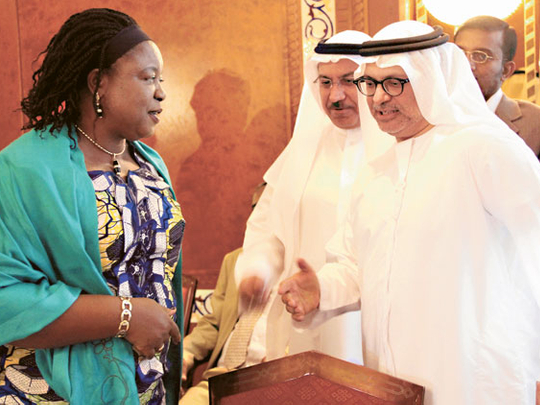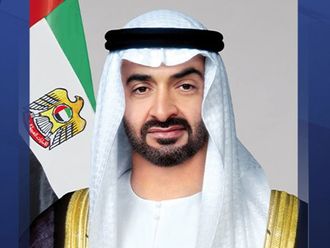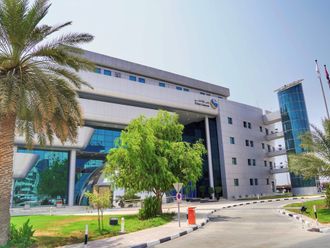
Abu Dhabi: The UAE is committed to taking the lead in acknowledging the existence of human trafficking as an issue that afflicts society and combating the crime in keeping with international best practices, said Dr Anwar Mohammad Gargash, minister of state for foreign affairs.
Dr Gargash, who is also Chairman of the national Committee to Combat Human Trafficking, was speaking after releasing the UAE's annual report on combating human trafficking in Abu Dhabi yesterday.
"Though the UAE's anti-human trafficking campaign has been effective and garnered international respect over the last six years, the country recognises that the problem is an iceberg and what we see is only the tip." he said.
He said the results of the last five years suggest that the government has made significant and rapid progress. "Despite this constructive and encouraging outcome, the UAE is aware that multiple and interlinked challenges associated with such criminal behaviour requires sustained alert. In light of this realisation, the government is determined to not only thwart the prevailing means of exploitation, but also improve the detection and prosecution tools of this crime in future."
Counter-measures
Dr Gargash said a measure of the UAE's performance in tackling this crime is evident in the number of registered cases. "While only 10 cases were recorded in 2007, it increased to 58 cases in 2010 and declined to 37 in 2011. Overall, the numbers indicate both growing awareness about human trafficking among the public and intensifying counter-measures adopted by the government. More importantly, the government agencies are becoming increasingly successful in disrupting the activities of several organised crime syndicates involved in human trafficking."
Dr Gargash stressed that as a committed and responsible member of the international community, the UAE will remain proactively engaged in the global anti-human trafficking campaign.
"The UAE receives large numbers of temporary contractual workers every year, who have made an important contribution to the development of the country. Unfortunately, criminals might engage in recruiting contractual workers and trafficking them illegally into the country," he said.
Dr Gargash said the UAE is approaching the human trafficking problem not just as a domestic problem, but coordinating much more effectively at the international level. "More importantly, it considers human trafficking to be wrong and unacceptable to Islam, Arab culture and the UAE value system. The government believes that human trafficking is a despicable crime and is committed to working to combat this practice in any form."
The UAE is committed to becoming a model for change in the region and an active member of the international community, he said. "The government is working hard on every element in its four-pillar strategy: legislation, enforcement, victim support, as well as bilateral agreements and international cooperation. Since the government first acknowledged this problem, it has consistently and continuously improved its efforts to limit the crime, as well as adhered to international standards, wherever possible."












